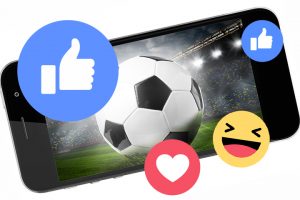Sportel Monaco: Facebook outlines its sports broadcasting challenges and opportunities
 At Sportel this week Facebook outlined how it is helping sports brands monetise their rights as well as, crucially, to develop and grow their audiences.
At Sportel this week Facebook outlined how it is helping sports brands monetise their rights as well as, crucially, to develop and grow their audiences.
The social media giant is in a constant cycle of reinvention. Management goals are changed every six months within the company, and as Facebook founder Mark Zuckerburg said, “you need to constantly reinvent yourself in this social media world”. Constant reinvention means that at this point, buying further sports broadcast media rights is not on the immediate horizon for Facebook, said Peter Hutton, director of sports partnerships at Facebook.
Hutton went on: “The goal is to create positive experiences on the platform.” Yet he added: “We have to work out what a positive experience is on the platform,” referring to the spectrum of different viewers and how they respond to what they are provided.
Because of these perpetually moving goalposts in both Facebook itself and the social media world, Facebook is always trying to “find the right fit, and that sums up where we are in sport,” continued Hutton. He went on to say the company tries small experiments to see how viewers respond, then it can feed the results into its work with sports brands.
Concrete successes
The business is focused around four pillars: audience development; sponsorship; commerce and conversion; and media distribution. While working with clients there is often crossover between these areas.
The combination of Facebook and Instagram is being used for many purposes, from helping to activate sponsorships, to increase purchases of merchandise, to drive OTT subscription, and to attract new fans.
An example of increasing subscribers comes from Premier Sports, which used its promotion of a Celtic vs St Johnstone football match to generate 4,000 more subscribers.
Hutton commented that Facebook was not trying to replace existing viewing methods, but to provide new, alternative ones that give brands access to a different audience.
For brands looking to develop as well as increase their audiences, Facebook provides access to a younger audience; MLB found that the average Facebook viewer was 20 years younger than its traditional, linear TV audience.
Facebook has worked with LaLiga since last season, when it started broadcasting all its matches on Facebook Watch. LaLiga and Facebook identified India as a key new market, which has now become the football league’s number one country for Facebook followers, and where 82% of viewers are under the age of 35.
Hutton noted: “Facebook worked with LaLiga to target India. We thought [India] could be a real success story for them.”
Facebook Watch figures are strong, with 720 million people every month spending one minute in Watch. However, the average session is 26 minutes.
Hutton said: “Facebook Watch is a fantastic story but we still think it’s really early days.” He said the company was continually evaluating the numbers generated by Watch, testing different ideas, which it will then use to further develop the platform and its strategy for using it.
However, Hutton commented: “About 96% of live sport on the [Watch] platform, we don’t pay for. People put it there. It’s delivering their goals, trying to find a business solution for them.”
More to come
On where Facebook sees further opportunities, Hutton pointed to multiple feeds on single events, such as iron man, and also Oculus VR. On the former, he explained that Facebook provides a channel for sports broadcasts that do not work well on traditional linear television, such as surfing where competitors have to wait for a good wave to be able to begin, or iron man events which are long.
He said the company is looking at providing multiple feeds on races like iron man, so that viewers can see what the elite competitors are doing at the front of the race, but also be able to find their dad or grandad in the crowds behind. He noted: “the audience doesn’t want one story, they want different stories.”
Oculus VR is an area of growing excitement for Hutton as well. He said: “There is huge potential point of growth for this company. Watching sport in VR is really exciting.” He said that with Oculus, friends in different locations can watch sport together as avatars, “like your in the stand together”, which opens up new possibilities for audience development, OTT subscriptions and a lot more.
